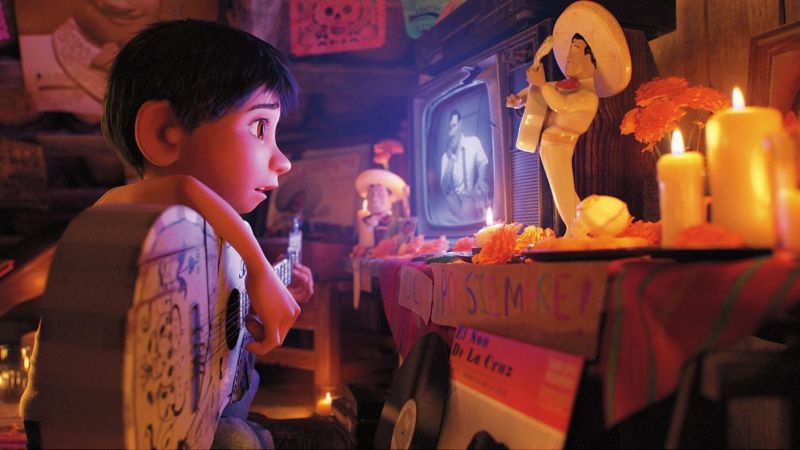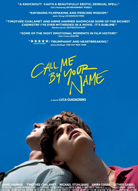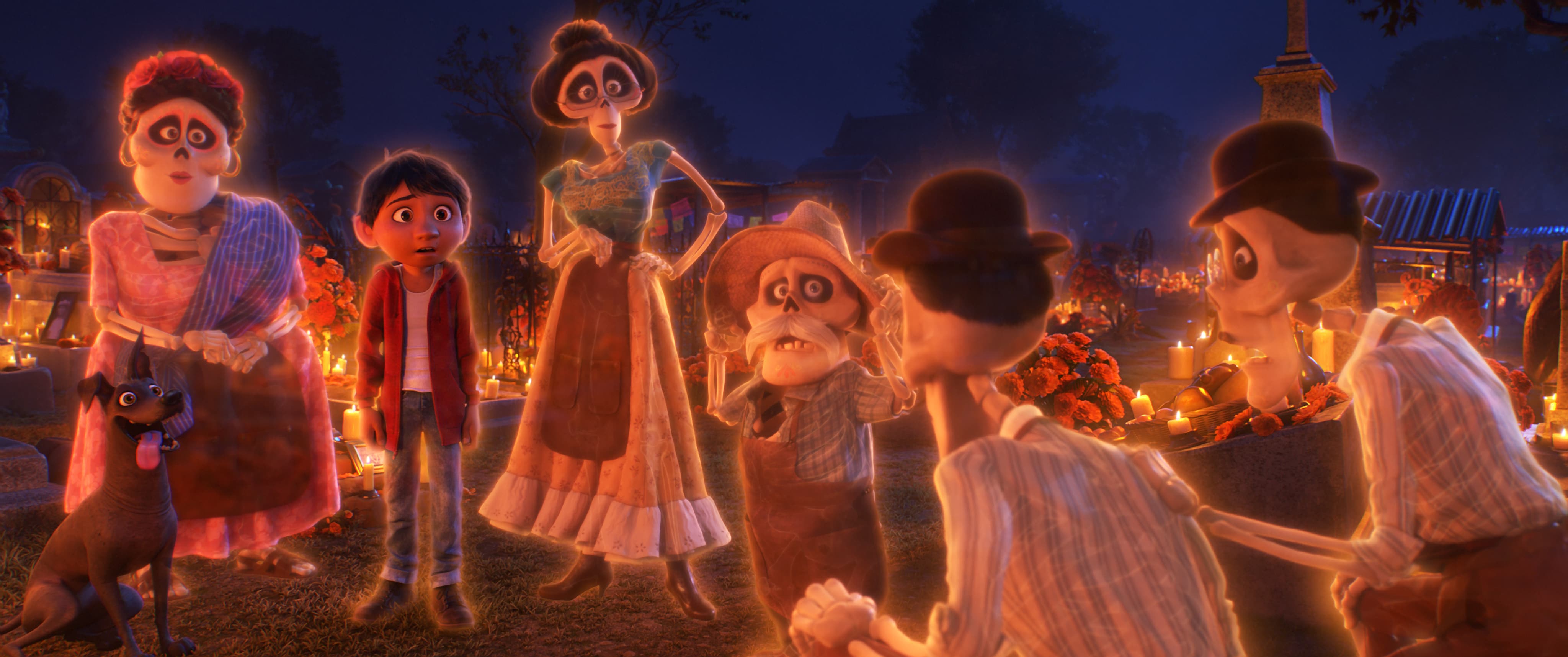Coco, CMBYN, and the Specificity of Feeling Seen at the Movies
 Wednesday, November 29, 2017 at 8:00PM
Wednesday, November 29, 2017 at 8:00PM by Jorge Molina

 Award season means trying to watch as many movies as possible in the shortest amount of time to feel included in the zeitgeist (well, in our zeitgeist here, at least; movies from all across the board that, apart from wanting to be in the awards conversation, often have little in common.)
Award season means trying to watch as many movies as possible in the shortest amount of time to feel included in the zeitgeist (well, in our zeitgeist here, at least; movies from all across the board that, apart from wanting to be in the awards conversation, often have little in common.)
Recently I watched two movies that, at first glance, couldn’t be more different. On one hand there’s Coco, Pixar’s newest entry about a Mexican boy wandering into the Land of the Dead. And on the other, there’s Call Me by Your Name, the much-discussed festival favorite that follows the romance between a teenager and an older man in sun-drenched Italy. On the surface, these two films don’t share much yet they offered me a very similar cinematic experience.

Both made me feel seen (yes, in italics). They reflected parts of my identity that I rarely get to see reflected on screen. How did they do that? By being as specific as possible...
This is something that has come out in many a therapy session over my life, but my Latino and gay identities are two sides of me that can’t seem to be fully validated by the world. This feeling is constantly reflected on the entertainment I consume, where representation of either is lackluster, narrow, and often wrong. However, these movies seemed to perfectly grasp and portray parts of them like no other movie had before.
As I wrote for the site before, Coco is Pixar’s most specific movie yet, centering the narrative around a very particular culture and group of people. It portrays Mexican culture (my culture) in ways that I’ve never seen done before. It is an homage to the people, colors, sounds and textures that I grew up with.
Coco, however, portrays a very external part of my identity. Something I share with an entire country; something that is loud, colorful, and familiar. Call Me by Your Name reflects an entirely other part of myself: a more internal, quiet, and emotionally complex part.
Call Me by Your Name is specific in a very different way. While Coco portrays very concrete traditions that are common to millions of people throughout generations, CMBYN tries to pinpoint ephemeral feelings around experiences that people have lived differently. Coco’s characters and story, while still in its own specificity, are more commonplace than those in CMBYN. A story about an upper-class Italian-American Jewish family in a summer villa is something far less people can relate to in the same way that I (and millions of other Mexicans) can relate to the pueblo of Santa Cecilia.

However, it’s not the character types, or the location, or the specific narrative circumstances in CMBYN that are likely to resonate with (not only, but particularly queer) audiences. It’s the feelings around and about them. The feeling of overwhelming desire and lust during puberty, the desperate need to be noticed and approved of by a crush, the suppression of “unnatural” feelings, the ecstasy over requited love and utter despair over the unrequited.
I’ve never had a romance that looked like Elio and Oliver’s. I’ve never travelled around Italy (or anywhere, for that matter) with a significant other. I can’t even relate to acting upon my sexual desires while I was a teenager, because those were just not my life circumstances. But I’ve felt every single one of those feelings.
I’ve lived Coco. I’ve felt Call Me by Your Name. Not all forms of representation are the same, but all forms of representation matter.
In being two of the most specific movies of the year, one in its way it treats a culture, and the other in the way it treats the way its characters feel, Coco and Call Me by Your Name have given me the gift of seeing myself (two widely different parts of myself) up on screen. That doesn’t decrease their value in tackling bigger, more universal ideas: you don’t have to be Mexican to enjoy Coco, and you don’t have to be queer to enjoy Call Me by Your Name. But they are a Mexican film and a queer film, respectively, and their universal appeal springs entirely from their specificity.



Reader Comments (14)
Jorge - this post is so beautiful, and demonstrates why representation matters. I am loving that TFE has made room for posts like this, and JA's posts about 'Call Me By Your Name' and 'Florida Project.'
Yes! More Call Me By Your Name’s and Coco’s and less The Post’s.
I mean really - how in the world did Spielberg come to the conclusion that in this horribly racist and white supremacist society we need another film where white people save the day?
Call Me By Your Name just came out and I’m already over it.
Uh, because "The Post" is based on a true story? We're not allowed to tell stories about white people anymore? That's a weird answer to the problem.
How Pixar/Disney/Pixar will do without its p**** grabber mastermid John Lasseter?
*mastermind*
How Pixar/Disney/Pixar will do without its p**** grabber mastermid John Lasseter? Probably just fine. Apparently he has lost his magic long ago. The last PIXAR film he masterminded is the "Cars" franchise. Andrew Stanton, Pete Docter, Brad Bird and Lee Unkrich have all made better films and will be fine without him in the forefront.
What Irvin said: SO TRUE!!
Or because The Post is a story about the woman who owned The Washington Post for decades, and few people know how she changed American history? Women are pretty shockingly poorly represented on film, even if they happen to be white.
Rebecca nailed it -- Jorge this is a beautiful post. The world needs more of these films, and more honest reactions like this. You so perfectly captured why we identify with film and the emotion it can stir in us.
What the world needs less of is the name calling and over-generalizations spewed by beyaccount. The Post may not be nearly as exciting to us as Coco and CMBYN, but to suggest that Mr. Spielberg is doing something wrong by bringing that story to screen is an abhorrent, unnecessary and inflammatory reaction.
But to end with something positive...well done Jorge!
Let's wait until we see " The Post " before making narrow minded ignorant statements
Beautiful post, Jorge. It's a wonderful meditation on the power of film and the personal impact it has on each one of us. Thank you for sharing!
"I’ve never had a romance that looked like Elio and Oliver’s. I’ve never travelled around Italy (or anywhere, for that matter) with a significant other. I can’t even relate to acting upon my sexual desires while I was a teenager, because those were just not my life circumstances. But I’ve felt every single one of those feelings."
Thank you for this. CMBYN deeply affected me in a profound way, yet I left feeling like I had wasted my teen years by not acting on my desires. The film hit close to home but I felt like an impostor compared to those who have had a young, whirlwind romance. However, we all have our own path in life and that's ok (and a good thing). The important thing is that we eventually accept ourselves and live truly as we are meant to be.
This post helped validate my feelings. Thank you.